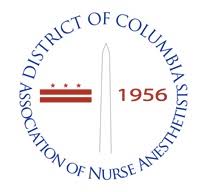With state legislatures firmly in session, proposals to advance our profession are occurring at an unprecedented pace. Bills that remove physician supervision and other restrictions are advancing through committees and houses, thanks to state nurse anesthetist associations and CRNAs like you.
Here’s a roundup of state legislation that has advanced through committees and houses:
- Virginia House Bill 1059 passed a House committee Jan. 28. The bill seeks to give CRNAs prescriptive authority and increase access to patient care.
- West Virginia House Bill 4356 passed a House committee Jan. 29. The bill proposes the removal of physician supervision and other restrictions on CRNA practice, alleviate surgeon concerns regarding liability, and allow healthcare facilities to staff appropriately.
- Ohio House Bill 224 passed the House Jan. 29. The bill seeks to clarify CRNA scope of practice regarding ordering medications, treatments, and diagnostic tests in the perioperative period and remove burdensome restrictions on CRNAs providing anesthesia care.
- Indiana Senate Bill 98 passed the Senate Jan. 23. The bill proposes to deregulate the supervision of advanced practice nurses like CRNAs and expand the types of doctors who may provide supervision to include podiatrists.
- South Dakota Senate Bill 50 passed the Senate Jan. 23. The bill proposes to authorize CRNAs to collaborate with podiatrists and dentists (in addition to physicians) and extend prescriptive authority and pain management.
Ongoing legislative proposals include South Carolina Senate Bill 563, which proposes to remove physician supervision; Massachusetts House Bill 4134, which seeks to remove restrictions on CRNA prescriptive authority and restrictive medical board regulation; and Florida House Bill 607, which proposes to remove physician supervision.
At the federal level, lawmakers have an opportunity this year to usher in reforms through the U.S. administration’s signing of an executive order to improve Medicare and recognize advanced practice nurses as the answer for providing accessible, affordable care.
Clearly the landscaped has changed. CRNAs will continue to make a profound impact on our nation’s healthcare delivery, despite what physician special interest groups claim. We can no longer allow others to define who we are or restrict our capacity to work at the top of our profession.
To learn more about what’s happening in your state, the AANA’s State Government Affairs team has developed a State Legislative Tracking Map, along with toolkits, talking points, flowcharts, and other resources to support your state’s advocacy efforts. Contact the State Government Affairs staff at sga@aana.com.
(Information provided by AANA)
